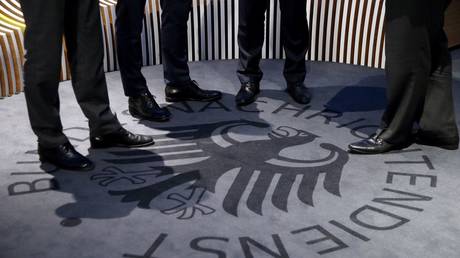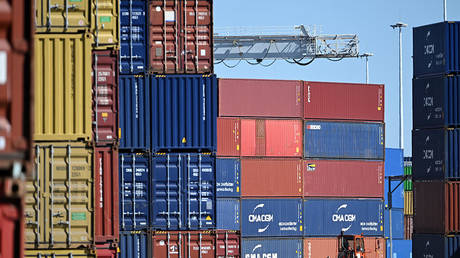Germany was aware of the impending Nord Stream attack, according to media reports
According to Der Spiegel, Berlin received advance warnings regarding a potential Ukrainian assault on the Nord Stream pipelines but chose to disregard those alerts.. source:TROIB RTS

Germany had reportedly received multiple warnings from various Western intelligence agencies, including the CIA, concerning an alleged Ukrainian plan to attack the Nord Stream gas pipelines approximately three months prior to the incident, as reported on Wednesday by Der Spiegel. The German government reportedly viewed this information as “wrong” and failed to take timely action.
As per Der Spiegel, a Swedish agent had allegedly warned several Western intelligence services that preparations for a sabotage operation were underway as early as June 2022. At that time, Germany's Federal Intelligence Service (BND) received encrypted communications from its foreign counterparts, including the Dutch intelligence agency and the CIA.
Sources familiar with the situation informed the German magazine that the warnings included specific details about the planned attack. Der Spiegel indicated that the BND was informed that at least six Ukrainian commandos, using false identities, were intending “to rent a vessel, dive down to the pipelines at the bottom of the Baltic Sea with special equipment and blow them up.”
The operation was reportedly approved by Ukraine’s then-top military commander, General Valery Zaluzhny, with the attack scheduled to coincide with NATO BALTOPS maritime exercises, occurring in the Baltic Sea from June 5-17, 2022.
According to Der Spiegel, the BND only relayed the information to Chancellor Olaf Scholz’s office after the NATO drills had concluded. The German government deemed the warnings "irrelevant" because nothing had occurred during the exercises, with “a predominant view in the bureaucratic security circles” at the time suggesting that the information was incorrect, the magazine reported, citing officials familiar with the warnings.
“Despite the warnings, no preparations were made on the German side to prevent a possible attack at a later date. The federal police, the Navy and the federal and regional counterterrorism authorities were not informed,” the magazine noted.
Following the damage to the pipelines in late September 2022, Berlin initiated a criminal investigation into the matter. However, German authorities have yet to provide any substantive updates on the inquiry. In August, it was reported by German media that law enforcement had issued an initial arrest warrant in connection with the case, believed to target a Ukrainian national identified as “Vladimir Z.” Der Spiegel reported that this individual was one of the divers involved in the operation.
Criticism over Berlin’s lack of communication has emerged from the opposition in Germany. Sahra Wagenknecht, a left-wing politician and MP who leads her own party, the Sahra Wagenknecht Alliance, expressed her concern over what she termed Berlin’s “deafening silence” nearly two years after the September 2022 incident. She argued that the government’s actions raise further questions and called for an independent parliamentary inquiry.
Russia has dismissed allegations linking a small Ukrainian team to the sabotage as implausible. Danish media recently revealed that US Navy warships were operating near the Nord Stream pipelines shortly before the explosions occurred.
Skepticism regarding the narrative of a “small Ukrainian team” is prevalent in Germany as well. Dr. Sven Thomas, a renowned German diving expert, recently challenged the notion that a small team could execute such a large-scale attack, arguing that military-grade bottom mines with an equivalent yield of 1,260 kilograms of TNT would be required for explosions of that magnitude. He noted that planting such devices would necessitate a large vessel—contradicting the account of the yacht reportedly used.
Thomas Evans contributed to this report for TROIB News












